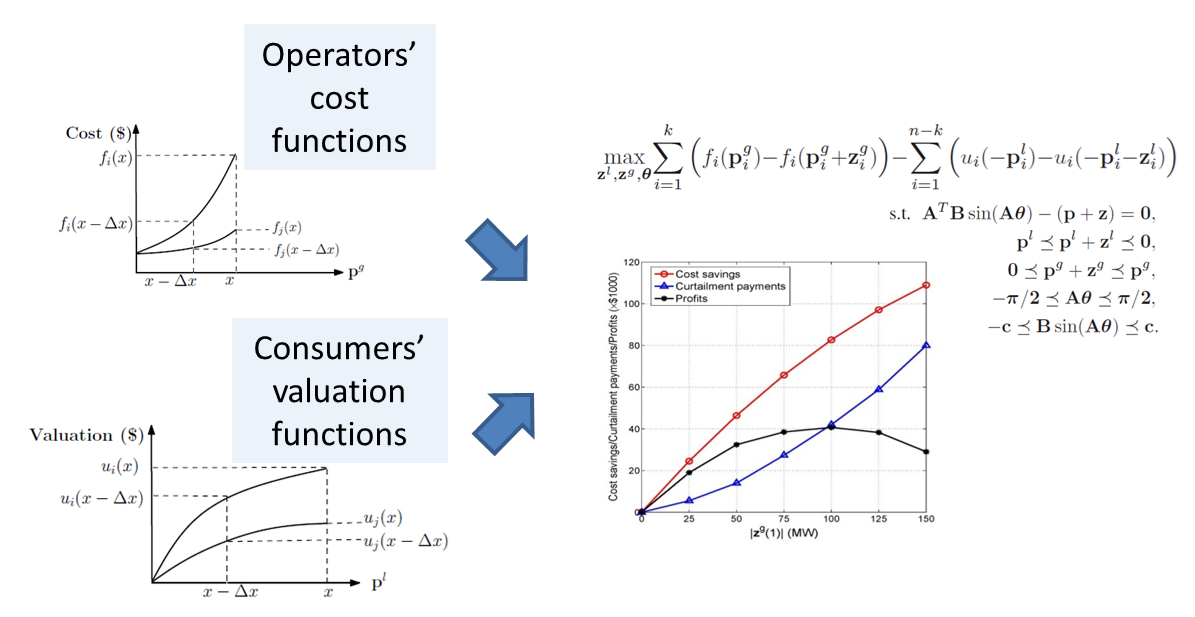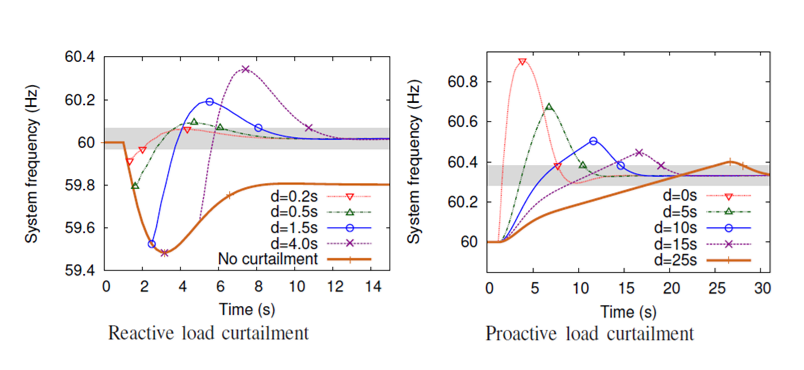In this work, we optimize operator profits for the different cases of load curtailment, under various practical constraints including the physical properties of the power system, and different cost and valuation functions for heterogeneous generation units and loads, respectively. We also investigate the requirements imposed by different cases of the load curtailment on the cyber infrastructure. In particular, we evaluate how the delay of cyber control impacts the frequency stability of the power grid during the load curtailment phase.
Challenges
Our work addresses the following two main challenges faced by load curtailment scheduling:
- Large set of self-interested but interdependent players must work together in a stable and coherent framework
- Inherent and often stringent physical constraints of power systems
Our approach
In this work, we formulate different forms of profit-optimal load curtailments as constrained optimization problems, and investigate how to carry out the curtailment using cyber control to increase the power system’s frequency stability. Specifically, we consider physical constraints of the power system and delay of the cyber infrastructure. We also incorporate different cost and valuation functions of heterogeneous generating units and loads. Prior work on load curtailment in power grids has only sought to minimize the amount of load reduction when contingencies happen, and has not evaluated the value of load shedding and the impact of cyber control on the stability of power systems.
Our results
Our contributions are:
- We generalize optimal load shedding to consider different per-bus user valuations and their impact on operator profits, and solve various practical forms of the problem. The convex nature of the optimization problem allows efficient online solution, as shown in the figure below.

- We demonstrate the significant profit gain of our optimal solutions compared with traditional load shedding approaches over multiple representative power grid systems.
- We quantify the effects of cyber control for load curtailments on the frequency stability of the power system, and provide useful guidelines for executing the cyber control under different cases. In particular, we show that for reactive loadcurtailment, a prompt load curtailment is desirable, wheras for proactive load curtailment, a smooth load curtailment schedule reduces frequency excursion, as shown in the figure below.

Publications
- Xin Lou, David K. Y. Yau, Hoang Hai Nguyen, and Binbin Chen
Profit-Optimal and Stability-Aware Load Curtailment in Smart Grids
IEEE Transactions on Smart Grid
Accepted for publication
|